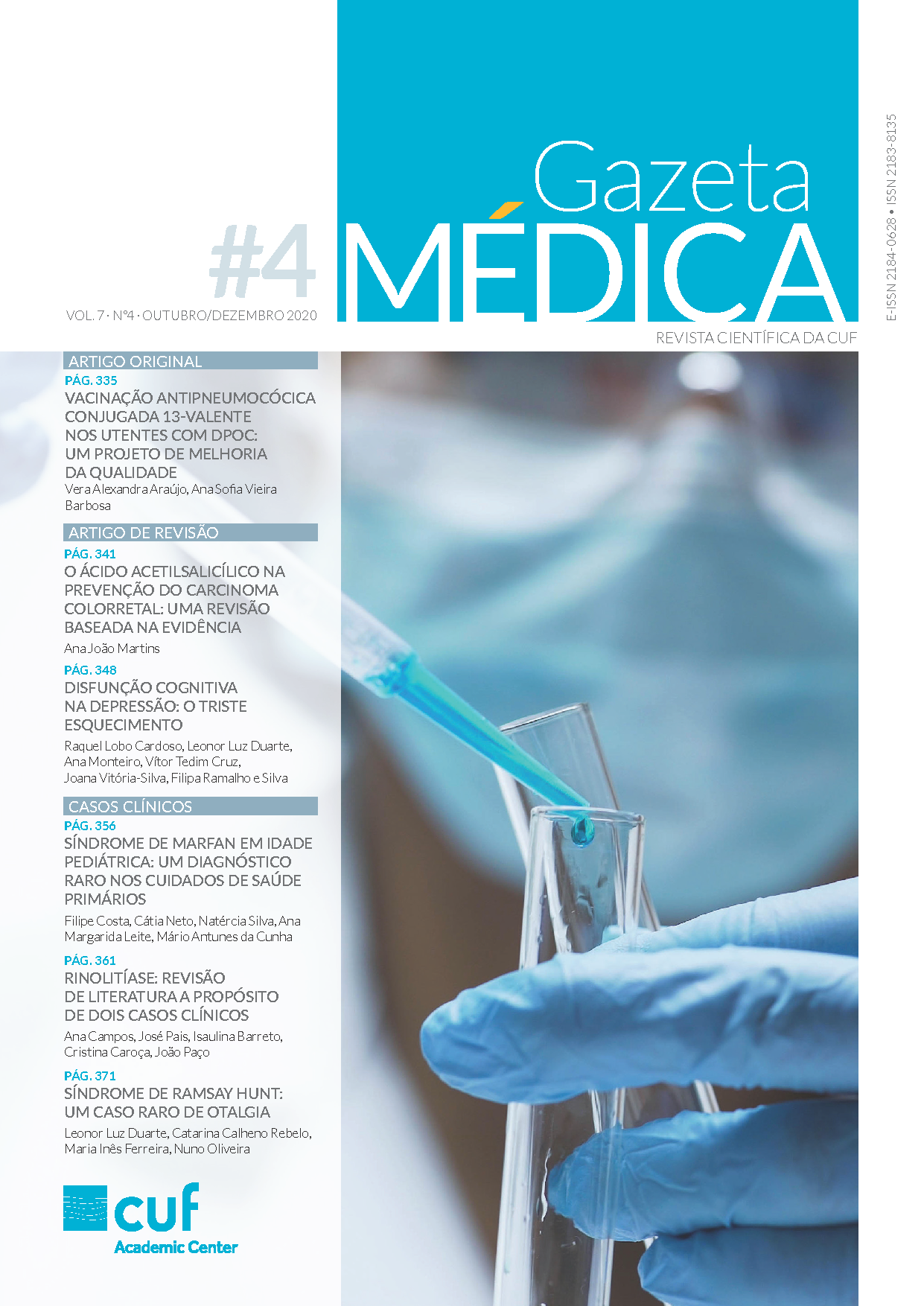Cognitive Dysfunction in Depression: The Sad Forgetfulness
Main Article Content
Abstract
INTRODUCTION: About 30% to 40% of elderly people with depression have a reversible cognitive impairment, commonly referred to as pseudodementia, the treatable condition most often confused with dementia. Our objective was to review the existing evidence on cognitive dysfunction in depression and the main differences in diagnosis, approach, and prognosis, in comparison with dementia.
METHODS: Literature review using the following MeSH terms: “Depressive Disorder”, “Cognitive Dysfunction” and “Dementia”.
RESULTS AND CONCLUSION: Many situations may present as a cognitive deficit, warranting a complete clinical history and assessment of the independent living skills of the patient. Neurological examination should always be performed, as well as the exclusion of the main organic causes of cognitive impairment. The role of the family doctor is important in the guidance of a patient with memory complaints and depressive symptoms. In some cases, this may imply a multidisciplinary approach between Family Medicine, Psychiatry and Neurology.



